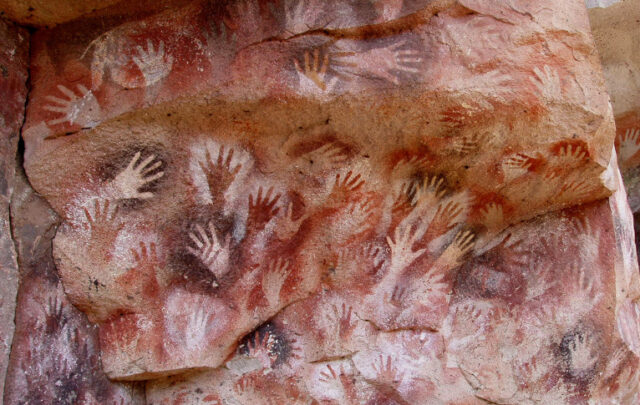 I am currently in full-on bookworm mode, up to my neck in books and papers, attempting to write my dissertation about tools for community planning for energy descent (due in September). Therefore, this might be a good time to reflect on some of the gems I’ve come across recently. The last list of books I did was around Christmas, and many people enjoyed it and wrote to me to that effect, apart from the person who commented on the site that it was a “weak little list”, and that its “uninformed reviews are rife with typos”. Oh well, you can’t please everyone..
I am currently in full-on bookworm mode, up to my neck in books and papers, attempting to write my dissertation about tools for community planning for energy descent (due in September). Therefore, this might be a good time to reflect on some of the gems I’ve come across recently. The last list of books I did was around Christmas, and many people enjoyed it and wrote to me to that effect, apart from the person who commented on the site that it was a “weak little list”, and that its “uninformed reviews are rife with typos”. Oh well, you can’t please everyone..
So here is a new list. They are not in any particular order, and very few of them have anything to do with peak oil per se, rather they reflect some of the odd avenues I am exploring for pieces of the puzzle we might need for designing community solutions to it.
 Find Your Power: Boost Your Inner Strengths, Break Through Blocks and Achieve Inspired Action
Find Your Power: Boost Your Inner Strengths, Break Through Blocks and Achieve Inspired Action
Dr. Chris Johnstone.
This is a very interesting new book, which is written as a self-help book, but which contains a great deal of use to energy descent work. Chris takes peak oil as one of the challenges we need to face, and offers a number of tools through which we can unlock our inner power and strength in order to be able to rise to the challenge. He offers a toolkit of strategies for finding our personal power in order to overcome challenges. A very powerful book, and the section on responding to peak oil contain a wealth of insights.
 Leadership and the New Science – Finding Order in a Chaotic World
Leadership and the New Science – Finding Order in a Chaotic World
Margaret J. Wheatley.
Fascinating insight into the way that the new understanding of science through systems thinking is informing the facilitation of change within organisations and communities. Offers a very clear overview of systems thinking and complexity theory and then draws lessons and insights of relevance in the facilitation of change. A seminal work.
Bringing Life to Organizational Change
Margaret J. Wheatley & Myron Kellner-Rogers.
A free article on Margaret Wheatley’s website (one of many) that offers an overview of some of the ideas elaborated in the above book. A fascinating article, packed with wisdom, and built around a set of four principles she draws from complexity theory and applies to organisations/communities. She addresses head on why most attempts to facilitate change don’t work. This is essential reading for energy descent activists.
 The Great Turning, From Empire to Earth Community
The Great Turning, From Empire to Earth Community
David C.Korten.
I mention this book because of what it is called and who it is by and what it is trying to say, but I must confess that, unlike many other bloggers out there who are raving about it, I found it somewhat disappointing. I found myself skimming through his sections on history, looking for the meaty stuff on how to actually bring about the Great Turning. I found very little, but every now and then some great sections of writing would pop out at me, such as;
“some critics will surely complain that “Korten wants to change everything”. They miss the point. Everything is going to change. The question is whether we let the changes play out in increasingly destructive ways or embrace the deepening crisis as our time of opportunity … it is the greatest creative challenge the species has ever faced”.
Important in the same way that Heinberg’s ‘Powerdown’ is important, because of the big idea, rather than the practical advice.
 Addiction and Change.
Addiction and Change.
Carlo DiClemente.
One of the avenues I am exploring is the whole area of addiction (which will be the subject of a post in a couple of days). This is a seminal book on the subject, which argues that the process by which individuals get into addiction is the same as that by which they exit from addiction, and is also the same as any process of change. It is packed with fascinating insights into how change happens and how it can be ‘nudged’ at various points.
This is the best elucidation of what is called the Transtheoretical Change model, which sounds like a headful but is actually a really useful model for the subtle stages in which change occurs, full of relevance to how an Energy Descent Planning process approaches and engages with a community. Finding this book was a real case of the right book at the right time, it was written about addictions for the psychology field, but much of it could equally have been written about energy descent planning. Essential reading.
 Motivational Interviewing – Preparing People For Change William R. Miller and Stephen Rollnick.
Motivational Interviewing – Preparing People For Change William R. Miller and Stephen Rollnick.
Motivational Interviewing grew out of the Transtheoretical Change model in DiClemente’s book (above) and is an approach for working with people with addiction in a very skillful way. It is a form of dialogue, at present used in individuals but I am looking at how it might be modified for use with communities. Like the above, this book is packed with insight into change, how it occurs and how it can be facilitated. A fascinating book about the subtle things that affect the change process.
 Hooked on Growth: economic addictions and the environment
Hooked on Growth: economic addictions and the environment
Douglas Booth.
An interesting US publication exploring how the West’s relationship with growth is akin to an addiction. One of the first books to propose this connection, and it does so very well. Written pre-peak oil, the issue of oil dependency is barely mentioned, but the case he sets out for a wider addiction to the growth economy and Western consumerism is compelling.
Brief interventions for alcohol problems: a review
Thomas H. Bien, William, R. Miller and J. Scot Tonigan.
An article from 1993 in the journal Addiction might seem an odd place to be hunting for solutions to the challenge of how to engage communities in the process of energy descent planning, but I am finding lots of parallels between the process of managing individual addiction and our societal addiction to cheap energy and all that it makes possible. This article has a very useful model at the end called the FRAMES model, which is a summary of tried and tested strategies for overcoming addiction, which by my reading are just as appropriate to community energy descent processes as to alcoholism.
The Availability of Non Conventional Oil and Gas
Colin Campbell, ASPO Ireland.
The latest offering from the grandfather of peak oil, offering a very concise and useful summary of the peak oil position. Makes the essential distinction between conventional and non-conventional oil and gas. Makes it clear, in Colin’s clear and patient way, just what a profound pickle we are in.
 Alternatives To Economic Globalization (2nd ed) A Better World Is Possible
Alternatives To Economic Globalization (2nd ed) A Better World Is Possible
edited by John Cavanagh and Jerry Mander
The most concise and up to date critique of globalisation by the leading thinkers on the subject. Does slightly fall into the trap of many ‘green’ books of having 7/8ths of the book about the problem with a small section at the end about solutions, but it offers a wealth of reasons from many diverse perspectives as to why globalisation is a desperately flawed idea which is killing culture, planet and people. Uncompromising in its reasoning and revelatory in its insights, this is a key text.
Energy Geopolitics 2006
Richard Heinberg.
The great man is back with a pithy and insightful update on where the world is at and what is behind current events. A little Heinberg goes a long long way. Part of his essential Museletter series.
 The Tipping Point: How Little Things Can Make a Big Difference
The Tipping Point: How Little Things Can Make a Big Difference
Malcolm Gladwell.
A classic that I keep returning to for its useful insights as to how to make an idea “tip”. Given that unless we can make the idea of energy descent as a positive transition ‘tip’ we really have no chance, Gladwell’s book offers many useful insights into how we can bring that about. More than a collection of practical tips, ‘Tipping Point’ is a way of thinking about ideas, of how you present yourself and your ideas. Just because a book is for sale in train stations and everyone and his uncle has read it need not necessarily mean it is rubbish (the ‘Dan Brown effect’). A classic and rightly so.
Any related good books (ie. not the Da Vinci Code) you’ve read recently that you want other Transition Culture readers to know about? Let us know….






